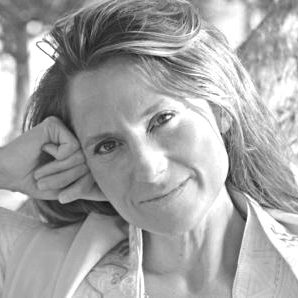 Central Park in New York City. Photo by Wikimedia Commons.
Central Park in New York City. Photo by Wikimedia Commons. There is something about New York City that drives me closer to my personal “d’mimah dakah” (still, small voice). That voice inside of me that connects my footsteps with the path ahead of me; that has a preternatural instinct of what street corner to turn at and which street light to wait for. All of this is apparent to me in New York City, where it seems that every day seems to lead me to some encounter of greater design revealed.
On a recent trip to New York City with my daughter, I walked to Central Park with the intention to treat her and my friend’s daughter to a carriage ride in the park. When we entered the park at 81st Street, the driver of an idling carriage informed me that he was waiting on a client. Ready to relinquish that activity and “find a new dream,” an Asian man on a bicycle-shaw pedaled up to us. “I know of another horseman who can take you now,” he offered, and invited us onto his bicycle carriage for a short ride to Tavern on the Green. Some still small voice in me said, “Go.”
Arriving at Tavern, I spotted a man loitering beside a horse and carriage, like a magical merkavah awaiting our arrival. As our group stepped off the bicycle-shaw, I said to the carriage driver: “Hi, I’m Lori. Are you free for a ride now?” The man introduced himself as Ariel. Recognizing that his name is a Hebrew name, I asked him in Hebrew where he was born. From this inquiry, I learned that Ariel was a veteran of the Golani Brigade when he served in the Israel Defense Forces, serving during the Yom Kippur War through the Lebanon War in the ’80s.
We rode through Central Park, singing “L’cha Dodi,” the children belting out the words and Ariel’s smile growing wider with delight. He turned for a moment, and said, “Do you know this one?”:
“HaYom Yom Shishi … HaYom Yom Shishi, Machar Shabbat … Shabbat Menucha. Hayom Kulum Ovadim Machar Shabbat … Shabbat Menucah … Shabbat Menucah. HaYom Yom Shishi … Shabbat Menucah.”
“This was a song we sang every Friday when growing up on kibbutz. Do you know it?”
Hearing the murmurs of children from swings nearby, I smiled with recognition. Ariel said that his wife teaches kindergarten at the Solomon Schechter School in White Plains, and he was a congregant of Rabbi Avi Weiss’ in Riverdale and brought goats (goats!) to the Hebrew school annually to teach children how to feel connected to the Earth and its creatures. He impishly added, “I had to keep them at my house afterward as they had nowhere else to go.”
He saw my delight. I told him that I was a “rabbah,” and creating a progressive community to make Judaism open and relevant for everyone on the periphery. I said that our community also loved inviting in goats, most recently as we sang “Chad Gadya” while doing goat yoga at the end of our Passover seder. He laughed with delight, in a way that only a kibbutznik can.
He told us, “I will remember this day. This made my year! And more! To sing these songs on Yom Shishi, in the park, on this carriage, with you all singing. I will remember this always.”
I extolled a Shehecheyanu and an “amen!” Indeed, the moment was magic. It was a bit of what I think we all seek as we navigate the streets of our lives: a connection to the wind of our souls, an affirmation from the still, small voice that we are in the right place at the right time, an experience of pure connection.
Ariel is a treasure. In our magic New York moment, a small piece of Eden was redeemed. As we near the end of the Book of Vayikra, and enter into our great narrative of our walk through the wilderness, Bamidbar, may we all keep our senses open for guideposts home along the way. Ariel was a holy malacay haSharit (ministering angel), for me; and a reminder that there are signs everywhere leading back home.
Rabbi Lori Shapiro is the founder and artistic director of The Open Temple in Venice.























 More news and opinions than at a Shabbat dinner, right in your inbox.
More news and opinions than at a Shabbat dinner, right in your inbox.